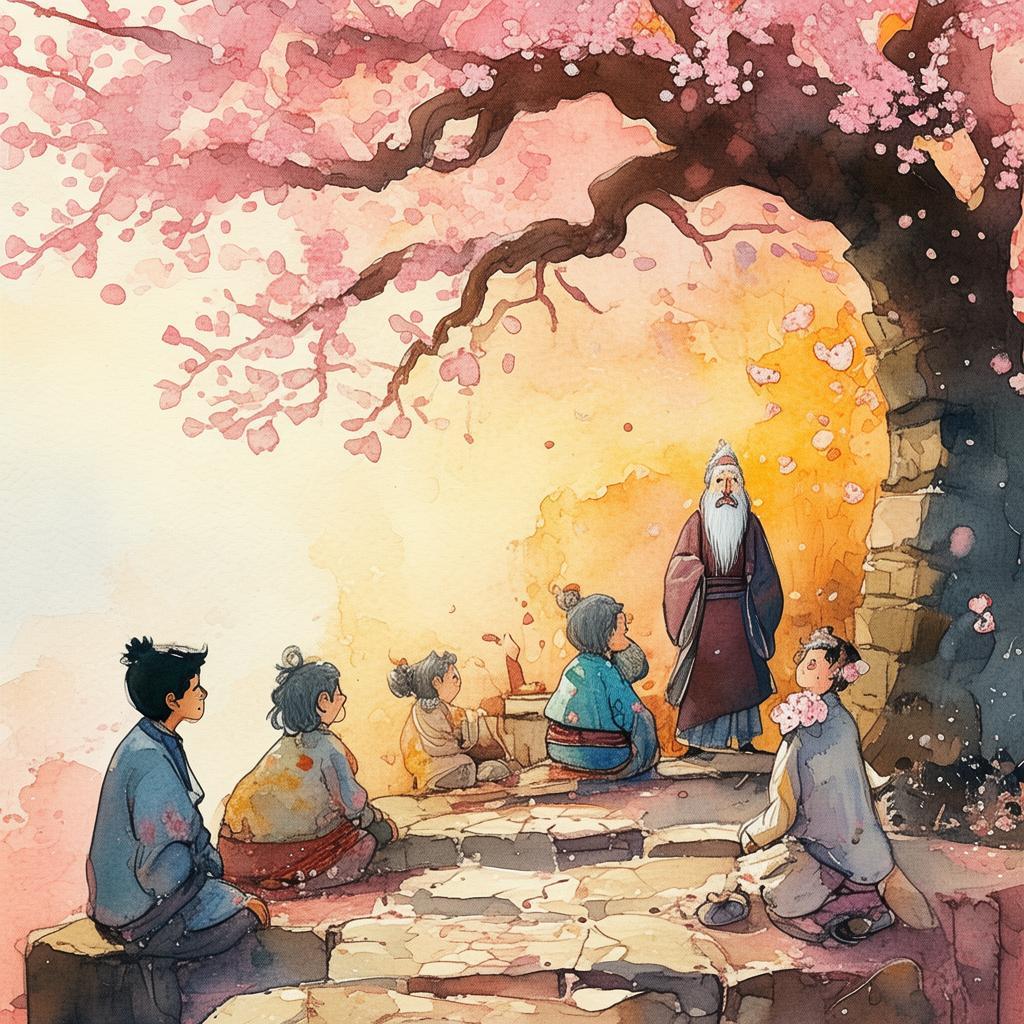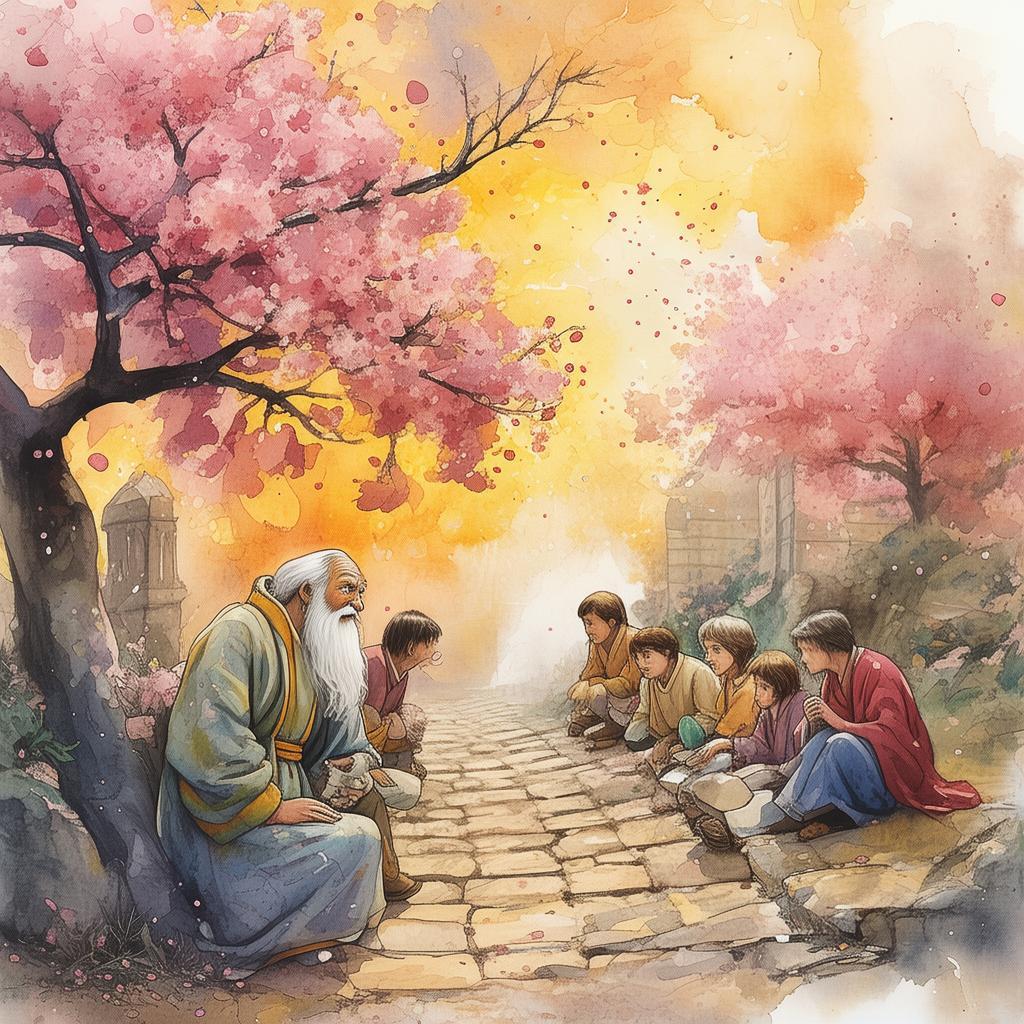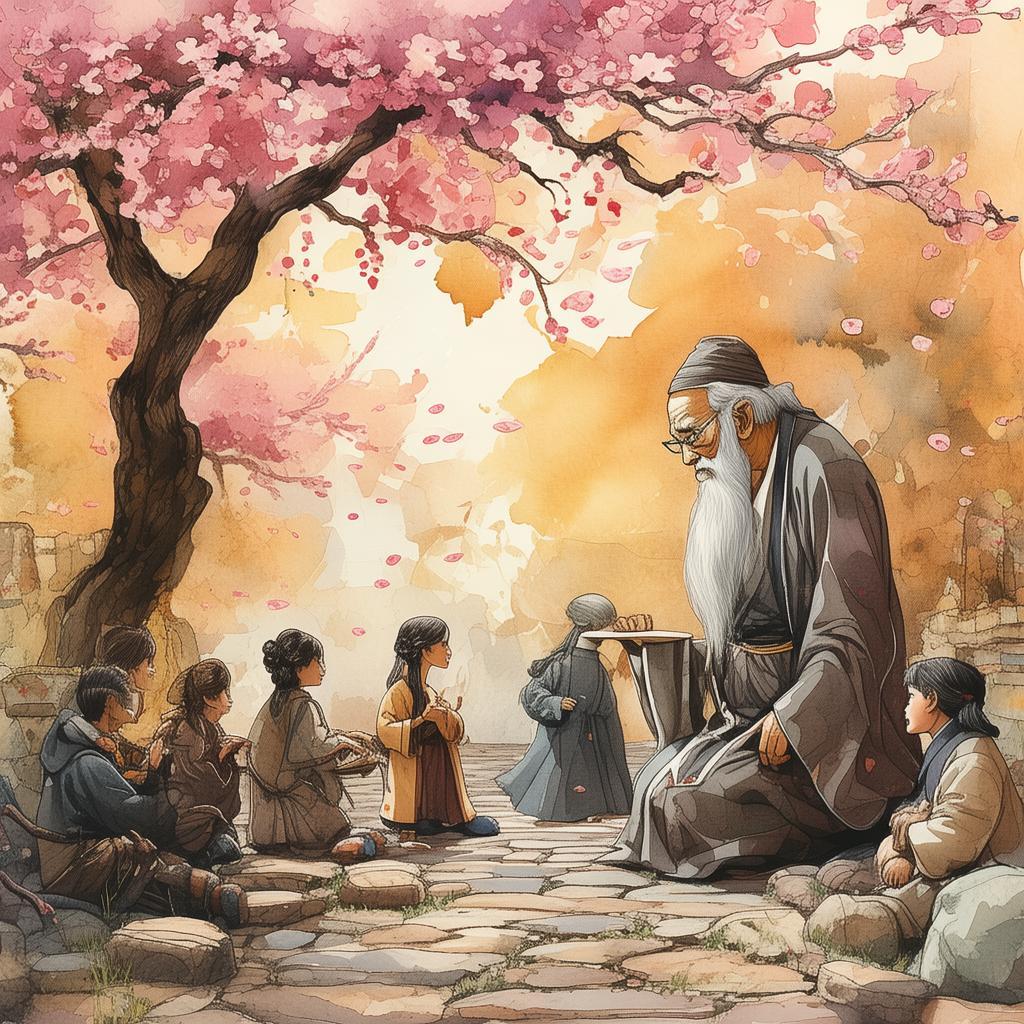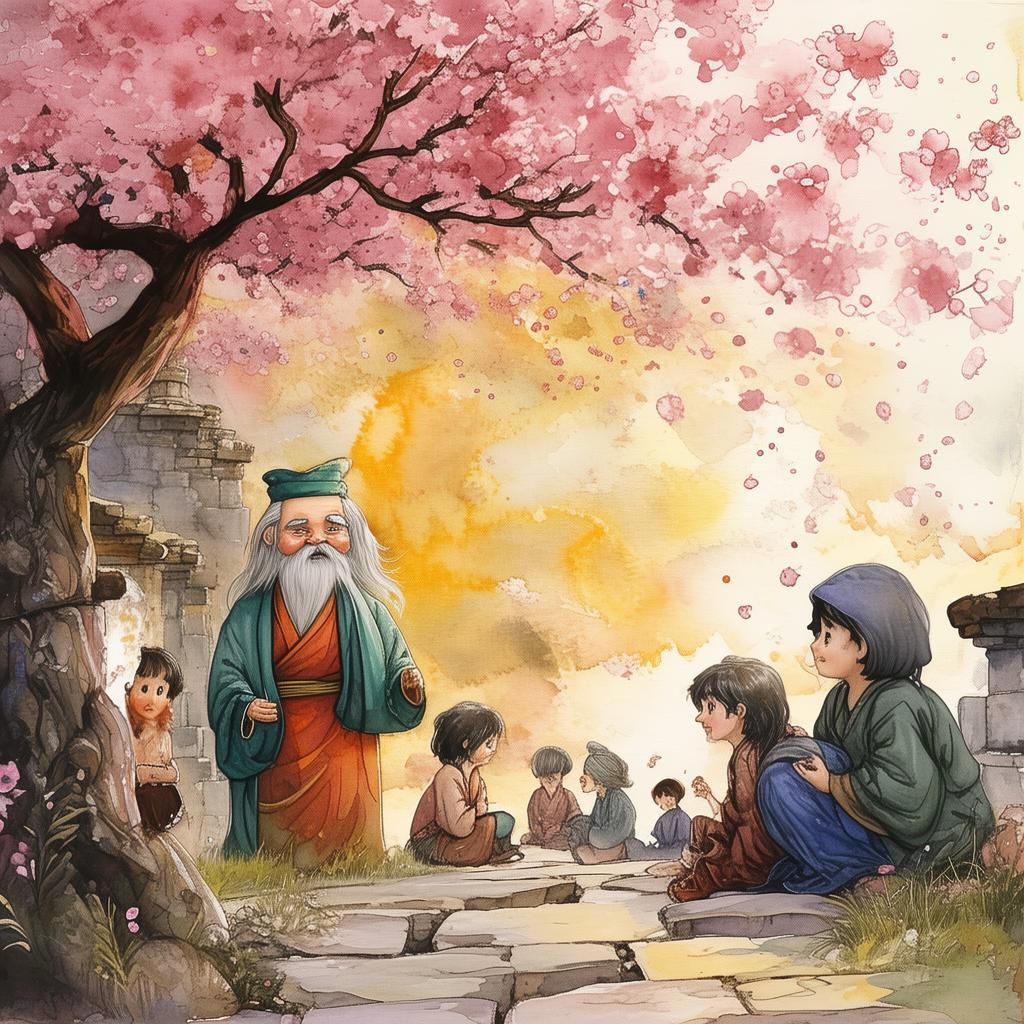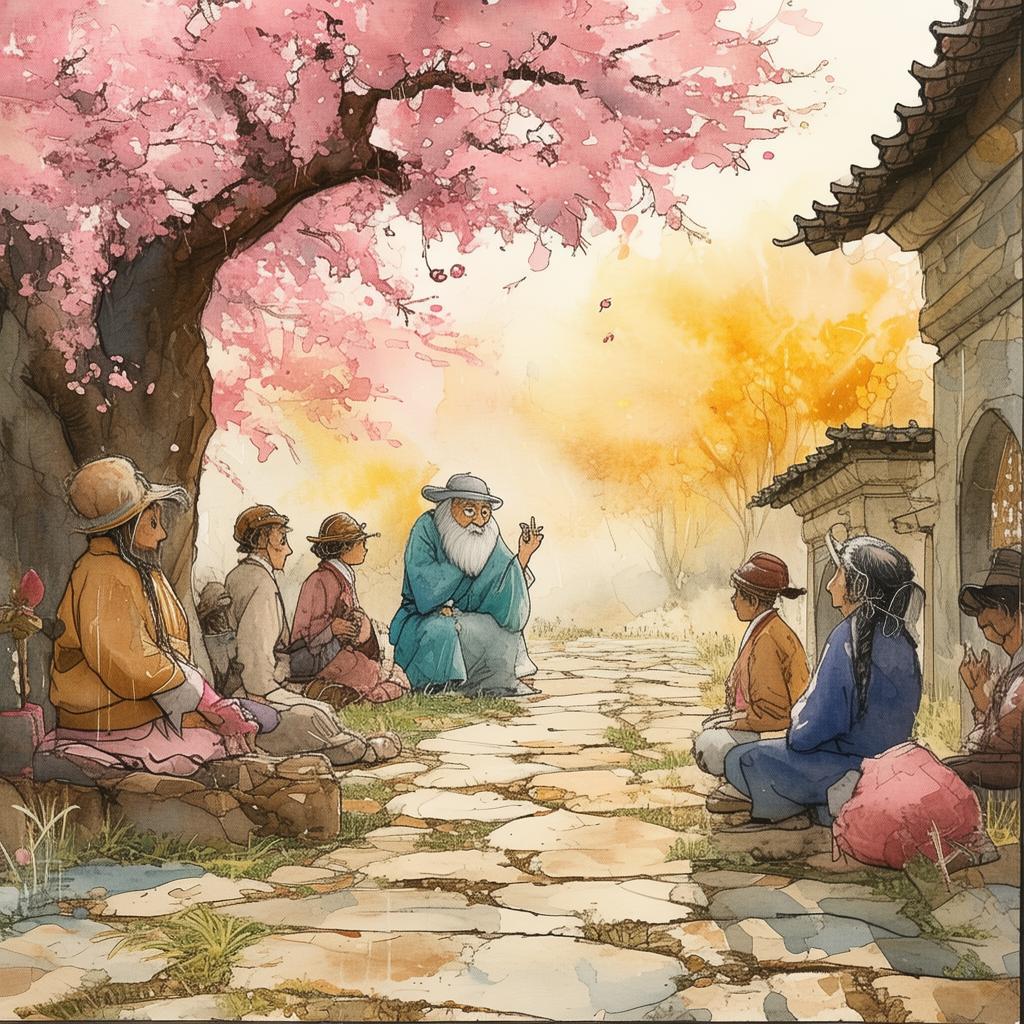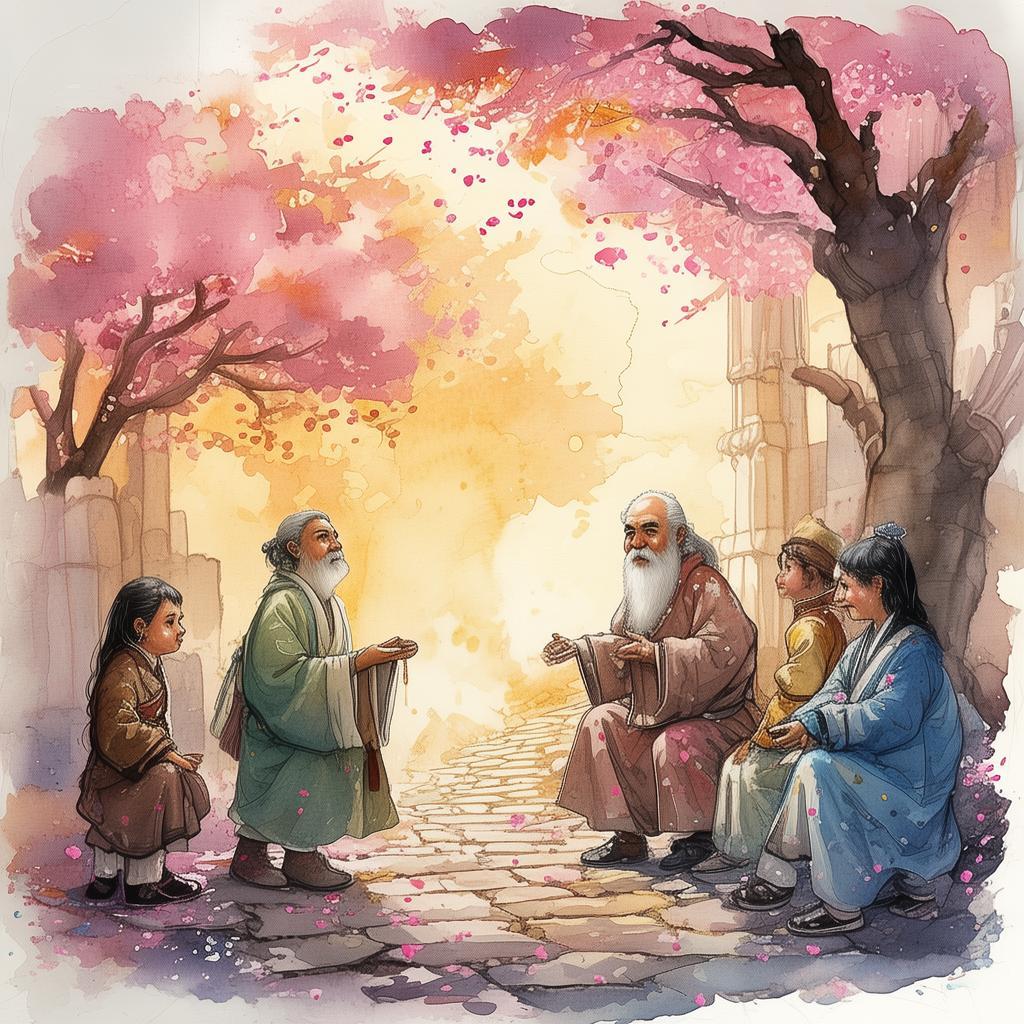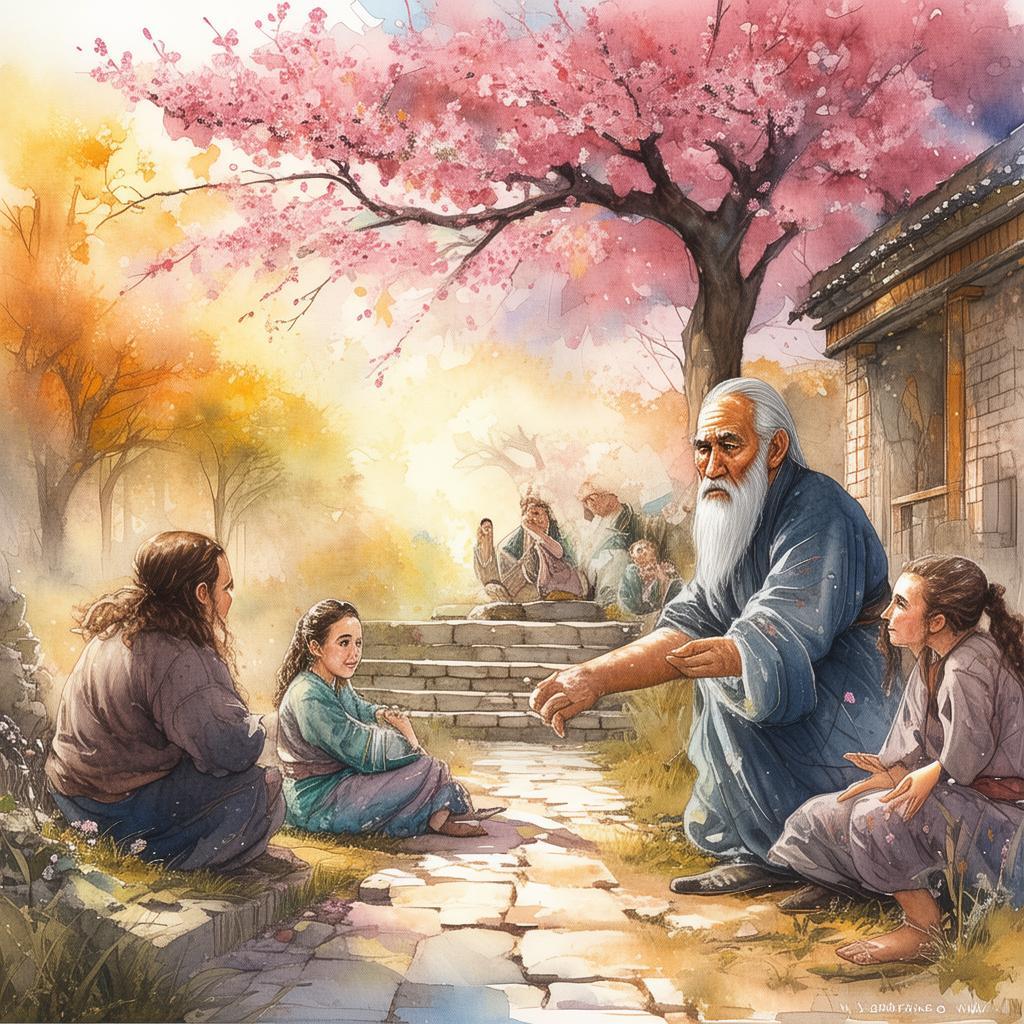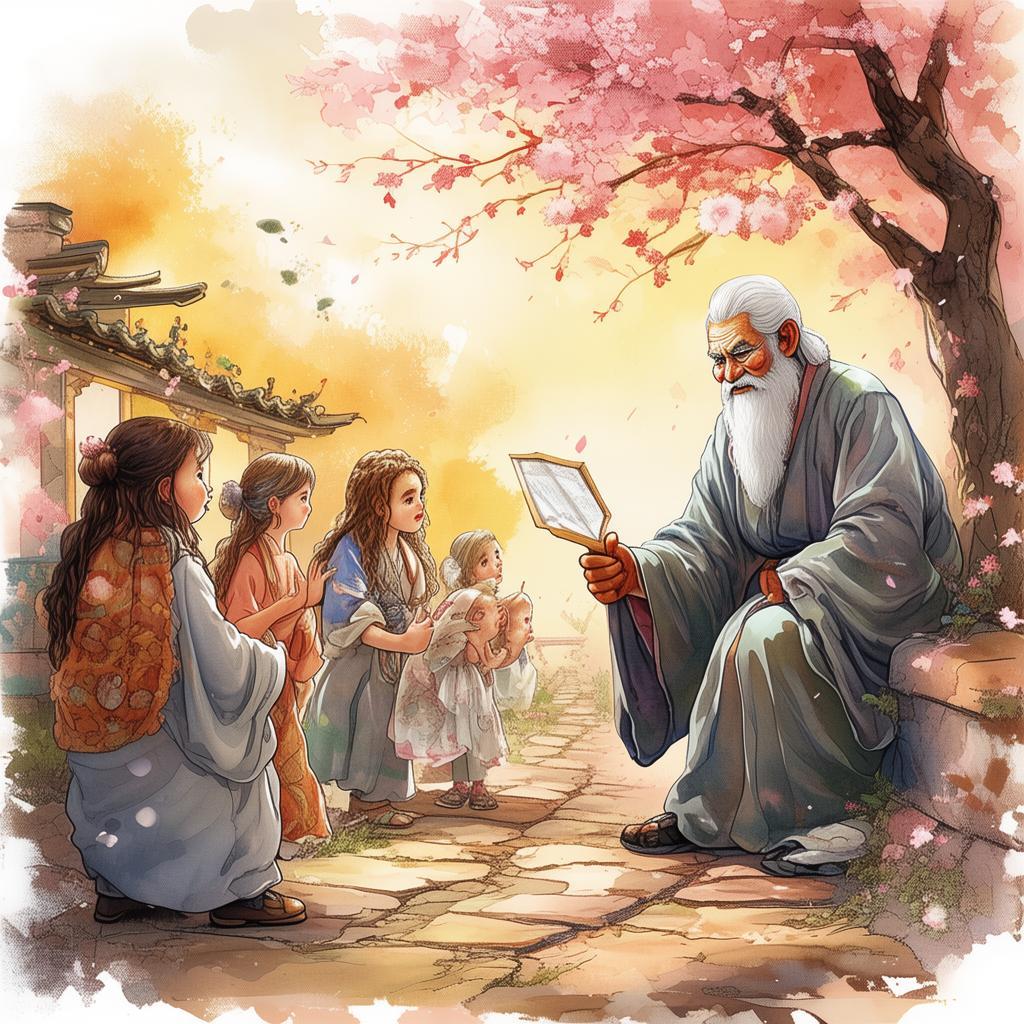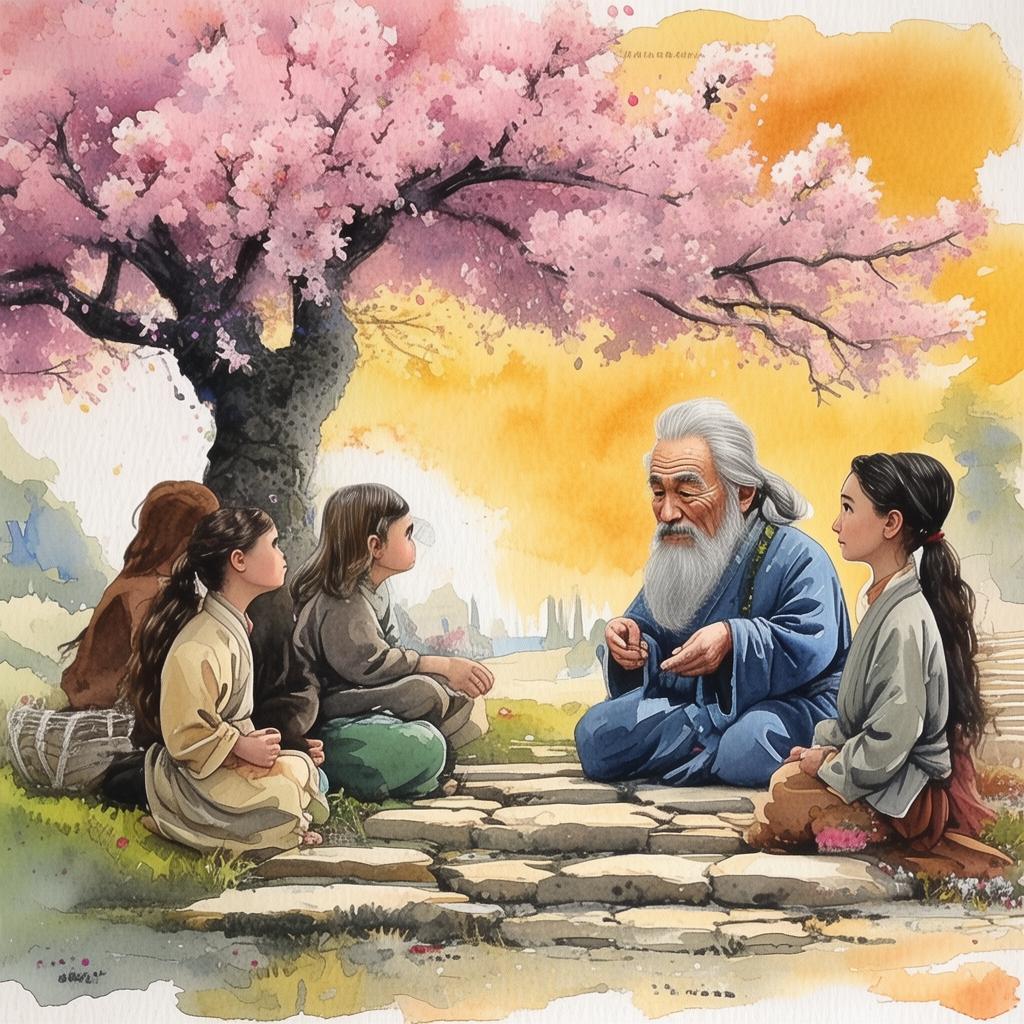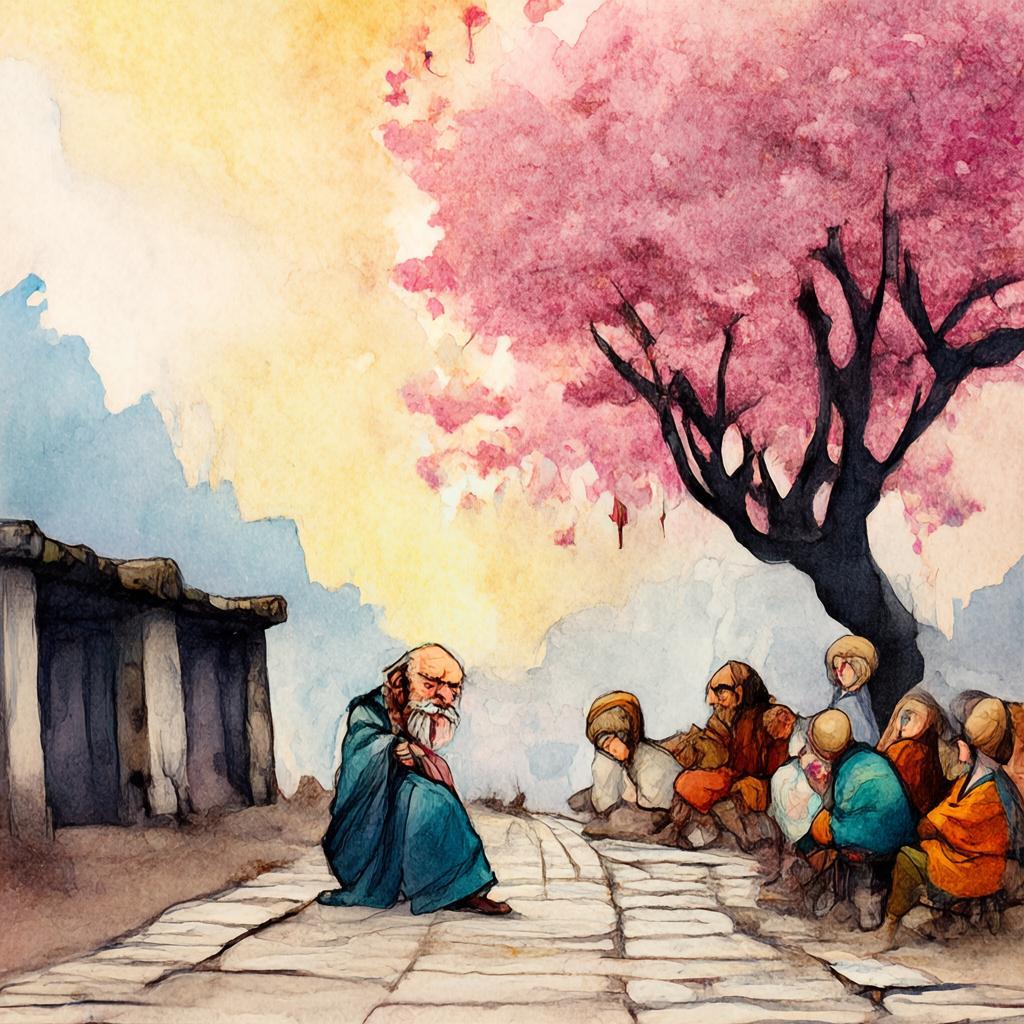The False Pretender's Masquerade
In the bustling city of Jingdu, renowned for its vibrant art scene, there was a story that whispered through the streets like a forbidden secret. It concerned a painting, a portrait known as "The Portrait of the Pretender," which hung in the private collection of the wealthy and eccentric art collector, Master Li. This painting was not just any artwork; it was a testament to the cunning of a false pretender who had managed to fool the eyes of the world, including the discerning Master Li.
The story began in the 1920s, when a young man named Cheng Hua arrived in Jingdu, a man of humble origins with a talent for mimicry and artistry. He had heard tales of Master Li's collection, which was said to be unparalleled in its beauty and rarity. Cheng Hua's dream was to become a part of this collection, not as a mere artist, but as a master of deception himself.
He spent years perfecting his craft, studying the works of the greatest painters, and learning the secrets of the art world. One day, he decided to present himself to Master Li as a master artist, claiming to have discovered a lost masterpiece by the legendary painter, Zhang Daqian. Master Li, intrigued by the claim, invited Cheng Hua to his estate for a private viewing.
The portrait that Cheng Hua presented was "The Portrait of the Pretender," a work that was said to have been lost for centuries. Master Li, a connoisseur of art, was initially skeptical but was soon captivated by the painting's intricate details and the enigmatic figure it portrayed. The portrait depicted a man in rich, regal attire, his face obscured by a mask, but his eyes seemed to hold a story untold.
Cheng Hua became a frequent guest at Master Li's estate, and soon he was not only recognized as a master artist but also as a close friend. Master Li's trust in Cheng Hua grew, and he even entrusted him with the care of his most precious possessions, including "The Portrait of the Pretender."
As the years passed, Cheng Hua's influence over Master Li's estate grew, and he began to live a life of luxury and respectability. However, the secret of his true identity weighed heavily on his conscience. He was not just a false pretender; he was a man who had become entangled in a web of his own making.
One evening, as Cheng Hua stood before "The Portrait of the Pretender," he felt a strange sense of foreboding. The painting seemed to come alive, and for a moment, the mask on the man's face slipped away, revealing the true eyes of the artist. In that instant, Cheng Hua realized that the painting was a mirror, reflecting his own soul and the truth of his deception.
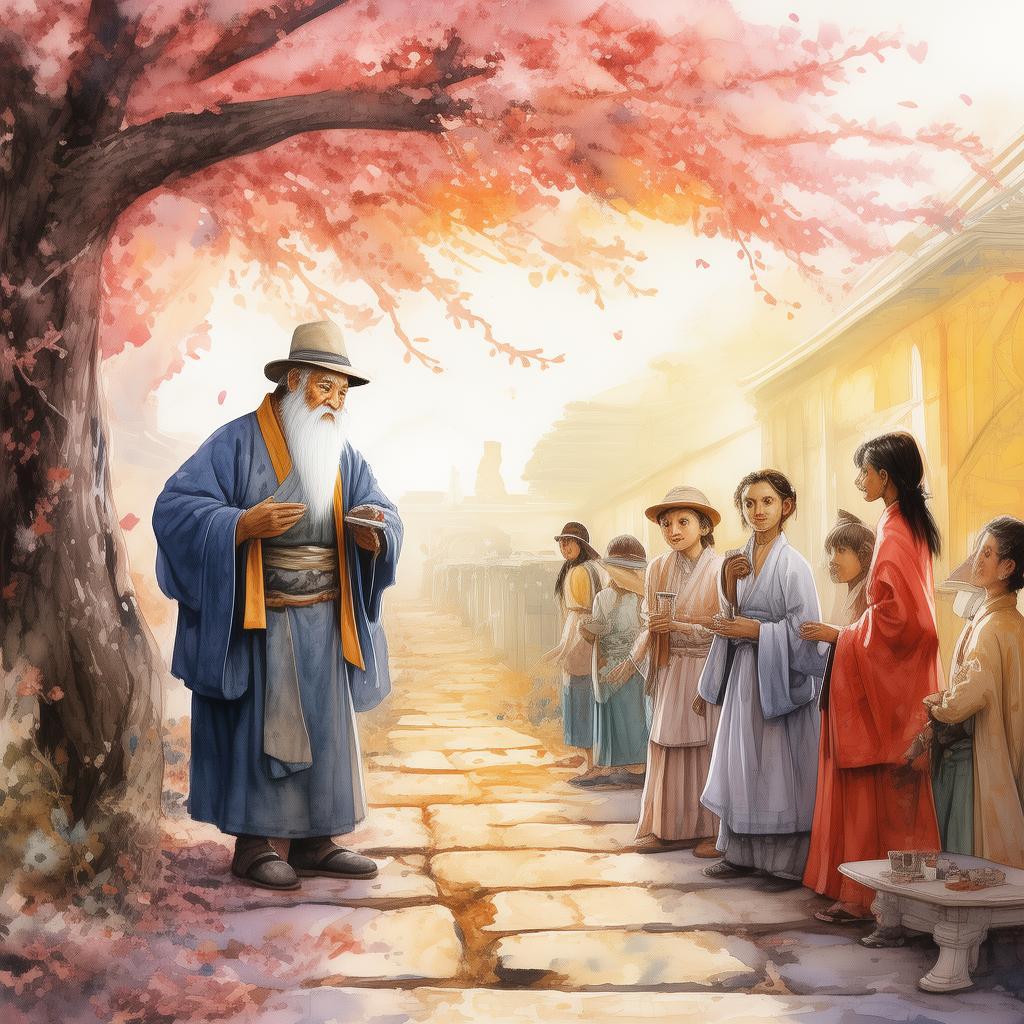
The next morning, Master Li discovered Cheng Hua's body in his study, the portrait still in his hands. The man who had once been a celebrated artist was now a ghost in the room, his identity a mystery to all but the painting that had held the key to his secret.
Word of Cheng Hua's death spread quickly through Jingdu, and Master Li, grief-stricken, ordered that "The Portrait of the Pretender" be returned to its place of honor in the collection. But when the portrait was placed back on the wall, it seemed to have lost its luster. The eyes of the man in the mask no longer held the same enigmatic gaze, and the painting's once vibrant colors had dimmed.
The story of Cheng Hua and "The Portrait of the Pretender" became a cautionary tale, a reminder that even the most skilled deceptions can be undone by the truth. And so, the painting remained a symbol of the masquerade, a reminder that behind every false pretender lies a soul yearning for authenticity.
The city of Jingdu whispered the story of the false pretender, and "The Portrait of the Pretender" became a legend, a reminder that the truth is always within reach, even if it is hidden behind a mask.
✨ Original Statement ✨
All articles published on this website (including but not limited to text, images, videos, and other content) are original or authorized for reposting and are protected by relevant laws. Without the explicit written permission of this website, no individual or organization may copy, modify, repost, or use the content for commercial purposes.
If you need to quote or cooperate, please contact this site for authorization. We reserve the right to pursue legal responsibility for any unauthorized use.
Hereby declared.
